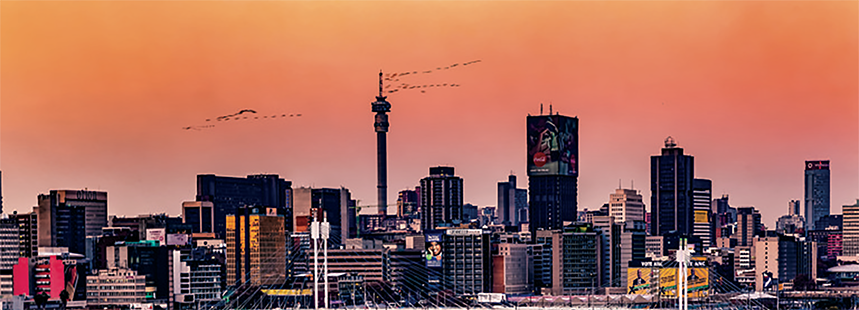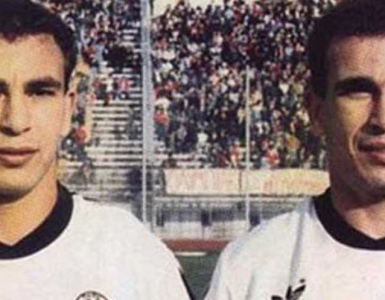GRIME: Because nothing screams ‘long-term vision’ quite like a frantic facelift for foreign dignitaries while the rest of us are told to be patient…
By Themba Khumalo
In the never-ending soap opera of South African politics—equal parts circus, crime thriller, and slapstick farce—nothing sparks a sudden burst of government enthusiasm quite like the arrival of Very Important Foreigners.
Cue the G20: a global pow-wow of economic bigwigs scheduled to touch down this November. And like a teenager frantically tidying their pigsty of a bedroom before their strict auntie arrives, Johannesburg—our beloved, bungled, battered City of Gold—has been flung into what officials are optimistically calling a “revamp”. Think less “urban renewal”, more “panic-stricken dusting before posh guests arrive”. One might even suggest it’s the metropolitan equivalent of tidying your room only when your strict aunt is due for a visit, rather than from any innate desire for cleanliness.
Enter Gauteng Premier Panyaza Lesufi: the ever-earnest ringmaster of this frenzied makeover, who has assured us, with a sincerity only possible in the upper echelons of public office, that Joburg will be “ready” to host the world’s most powerful people. Ready, that is, to transform the city for the current state of its long-running neglect: rickety infrastructure, inner-city streets ridden with potholes deep enough to require scuba gear to wade through, and traffic signals that function less by circuitry and more by divine whim.
It’s a bold claim, considering most Joburg residents spend their commutes playing a high-stakes game of “dodge the crater” while simultaneously attempting to communicate telepathically with a non-responsive robot.
But do not let your cynicism run amok, dear reader. According to Lesufi, this sudden surge of municipal energy is not—repeat, not—for the G20. Oh no. It’s purely, wholeheartedly, unequivocally for you, the long-suffering citizen. That this mass mobilisation of resources and willpower coincides exactly with the arrival of foreign dignitaries is, we are told, a happy little accident. Like finding a working manhole cover, or a public servant with a sense of shame, or a perfectly ripe avocado for under R20. The timing, we must believe, is purely coincidental—much like the sudden surge in political smiles during election season.
In a feat of bureaucratic theatre that would make the West End weep, Lesufi has launched weekly Tuesday “walkabouts”. Picture it: our Premier striding solemnly through the city with a furrowed brow and a clipboard, gently nodding at newly patched tarmac like a man rediscovering civilisation. One assumes his entourage follows behind, sweeping away any stray litter with military precision and politely ignoring the stench of untreated sewage wafting from a conveniently “overlooked” storm drain. No doubt, a team of highly skilled stagehands will be on standby, ready to deploy strategically placed pot plants and hastily painted murals should an unseemly reality dare to intrude on the photographic evidence of progress.
And, just to prove this is not all smoke and mirrors (though there is, admittedly, plenty of both), Lesufi has produced a document. A proper one—full of percentages, plans, and carefully curated optimism. News24 reports that it had the honour of seeing this scroll of salvation, which allegedly reveals that Joburg’s pothole repairs are now more than 70% complete.
Streetlights—once nocturnal fantasies relegated to children’s bedtime stories—are allegedly now functioning at a rate between 71% and 91%. That figure is so vague it could be describing anything from the number of functional traffic wardens to the national mood, but let us play along. Perhaps the missing 9% of streetlights are simply shy, or on a prolonged load-shedding break.
Misplaced pride
Meanwhile, in the City of Ekurhuleni—our national welcome mat, home to OR Tambo International Airport—things are a touch less… polished. Lesufi’s magic document lists sinkholes, a collapsed mineshaft, graffiti, and litter. Progress on repairs? A rousing 0%. That’s right: not even a polite shrug in the direction of improvement. Which means, come November, delegates might exit their planes to a scene best described as “Mad Max meets municipal indifference”. But the show must go on. Lesufi, undeterred, spoke of restored streetlights on the Midrand–Sandton corridor with all the giddy pride of a man discovering fire. “It was a dark city,” he declared, as though narrating a dystopian epic, “but the lights are there.”
One imagines him hoisting a glowing robot into the air like Rafiki with Simba in The Lion King, whispering: “Behold… infrastructure.” A truly miraculous transformation, considering these are lights that were, theoretically, always supposed to be there. It’s like celebrating the fact that your car, after years in the garage, finally starts when you turn the key.
For the more inquisitive among us—those daring to ask what becomes of this frenzy once the G20 jets off, leaving behind a faint whiff of expensive cologne and unmet expectations—Lesufi offers his most well-worn phrase: sustainability. “We must go beyond the G20,” he assured us, as politicians always do before quietly shelving the whole effort and disappearing into committee meetings and strategic planning workshops that never plan anything beyond the next press conference. It’s the political equivalent of promising to start that diet tomorrow. Perpetually.
He’s not alone in this fever dream. Apparently, the Mayor of Joburg, Dada Morero, is “in regular talks”, finances are being “discussed”, and the “presidential turnaround team is literally camped in our programme”. Whether that means tents pitched at Joburg City HQ or merely another WhatsApp group chat filled with “read but not replied” messages is unclear. But the phrase is doing a lot of heavy lifting—probably more than the actual turnaround team itself. One pictures a small, bewildered scout troop huddled around a flickering braai, wondering if anyone remembered to bring boerewors or a working municipal power cable.
Prayer
So, what are we to make of all this? Is this the birth of a new Joburg—a phoenix rising from the pothole? Or is it just another bout of cosmetic panic, a sprint to slap some gloss over the city’s decaying core before the foreigners arrive—much like painting over rising damp? If history is any indicator, you’d be forgiven for betting on the latter with both your pension and your last working traffic light.
After all, we’ve seen this before: cities beautified in the frantic lead-up to the 2010 World Cup, only to be forgotten like last season’s budget speech. Promises made, potholes patched, and then, once the photo ops are over, everything quietly unravels back to its natural state of crisis management and rolling excuses. It’s a cycle as predictable as the sun rising—or piss after beer.
But let us not be uncharitable. Let us marvel—however fleetingly—at the miracle of a semi-functional streetlight. Let us cheer for the robot that, against all odds, obeys basic traffic sequencing. Let us hold our breath as we drive over that fresh pothole patch and feel, if only for a moment, like we live in a place where things work. Because in Johannesburg, even a fleeting illusion of progress is worth celebrating—preferably with a strong coffee and a prayer that your tyres survive the next block.
And, if your suspension makes it to Christmas intact, well—that’s your real miracle.
* Themba Khumalo is the publishing editor of online publication The Telegram
Comment
DETERMINE YOUR OWN DESTINY
Despite valiant efforts by government to address the injustices of the apartheid rule after the ushering of democracy almost 30 years ago, persistent challenges, including inequality, unemployment, poverty and unemployment, continued to be the stubborn factors that obstructed the swift resolution to these complex problems. Instead of addressing the injustices of the racist and oppressive regime, the government’s genuine efforts of delivering what they had promised the masses before coming into power, turned into a nightmare especially after the passing on of South Africa’s first democratically-elected President, Nelson Mandela. The country had since then been plagued by rampant corruption orchestrated mainly by government officials who stole billions of rands of money that was earmarked for developing the lives of those who brought them into power. Corruption became an infectious disease. And those who were the hardest-hit by the rampant theft of State coffers were the poor masses.
Black people continued to suffer under their own government. Unemployment figures started to increase, the mushrooming of shacks intensified because of lack of housing, children in rural areas continued to receive lessons in dilapidated classrooms and under trees, learners had to travel long distances because of lack of scholar transport and crime statistics kept on increasing leaving South Africans unsafe even in their own homes. This is happening while many of the culprits who stole these millions of rands and denied the majority of people in this country to live decent lives, are themselves living in luxury.
With the country, now being led by a Government of National Unity, and South Africans facing a bleak future, we are encouraged by the calling of a National Dialogue – a people-led process – where South Africans would have an opportunity to reflect on the country’s future and the way forward. Although there has been a brouhaha around the National Dialogue, with some organizations withdrawing almost a week before it started, we believe that this was not the time for trying to politicise a crucial issue that affected all South Africans irrespective of their political affiliation.
There is nothing wrong in inviting the nation to express their views in helping to determine the future of this country. The National Dialogue could be a powerful and democratic expression of people participating in a process to determine self governance.
It is also at this National Dialogue where South African citizens could raise their concerns regarding poverty, unemployment, crime , inequality and the murder and abuse of women and children. It is at this Dialogue where citizens can propose strict legislation, including life sentences without parole, on dangerous criminals especially those convicted for gender-based violent acts. What is also of utmost importance is for the authorities to take these views seriously and to swiftly implement the wishes of the people to help in determining South Africa’s next chapter.
Those who differ from the holding of this National Dialogue have the right to disagree because honest disagreement, according to the late famous Indian lawyer, Mahatma Gandhi, is often a good sign of progress.
Meanwhile, South Africans cannot fold their arms while the country is on fire.


































